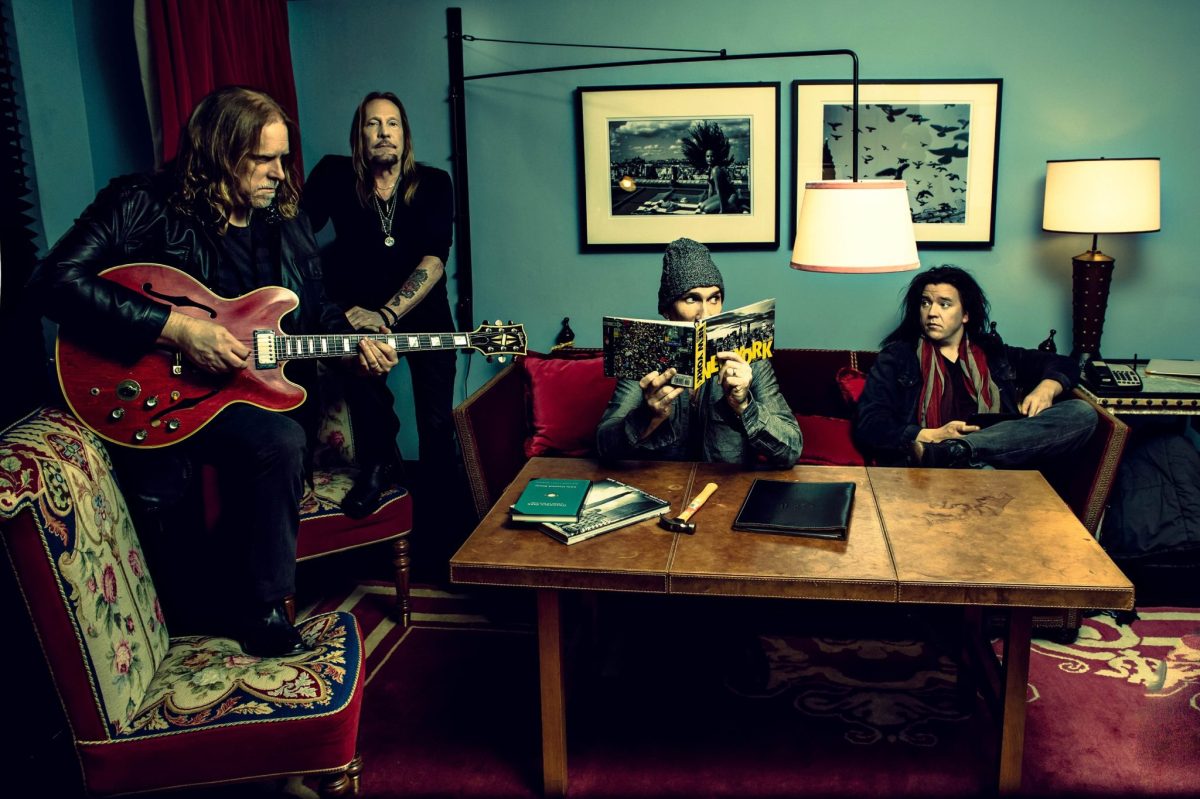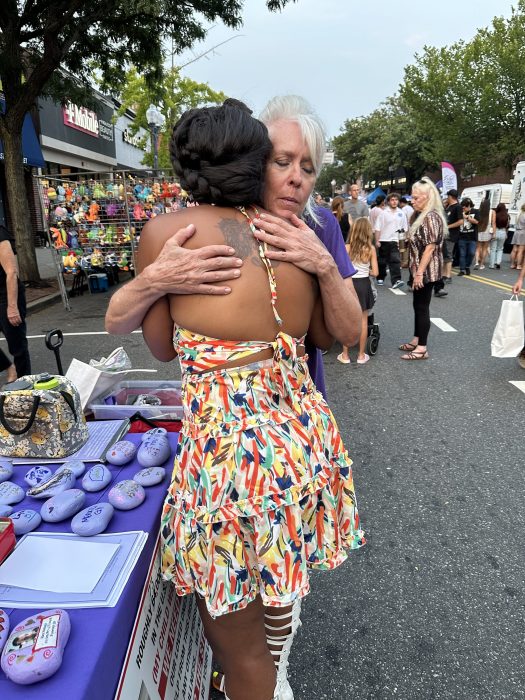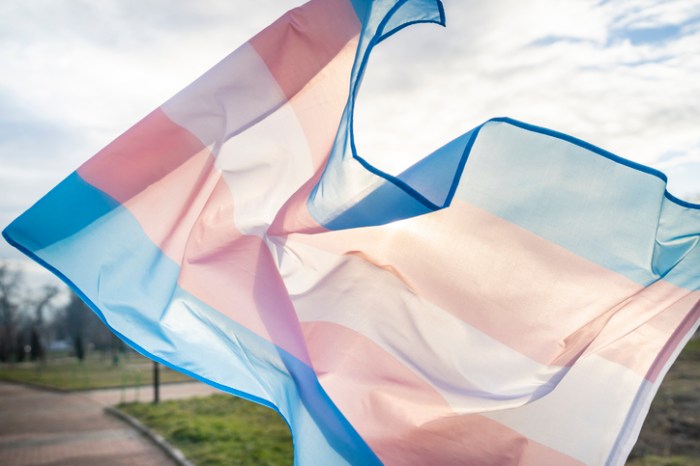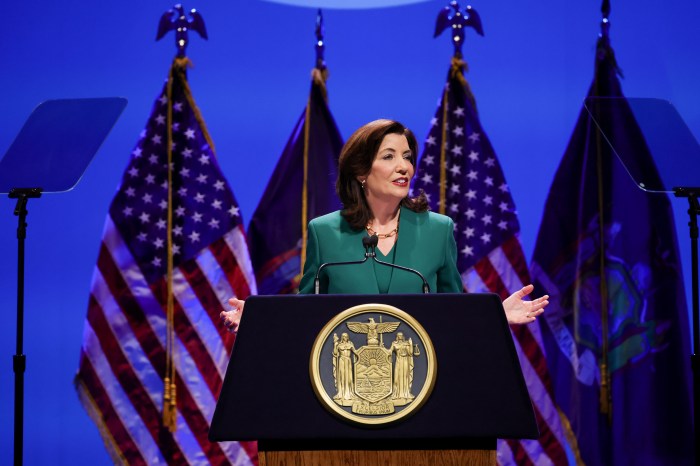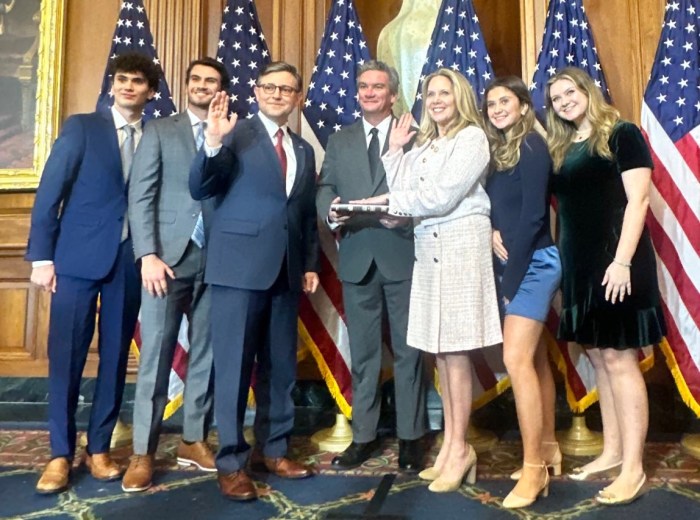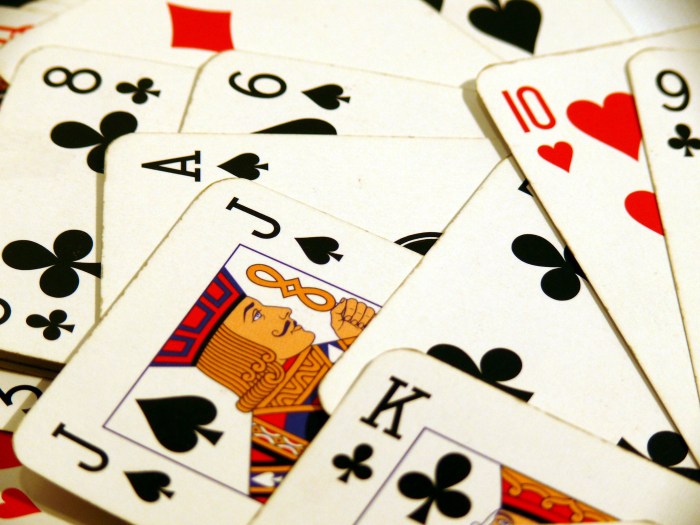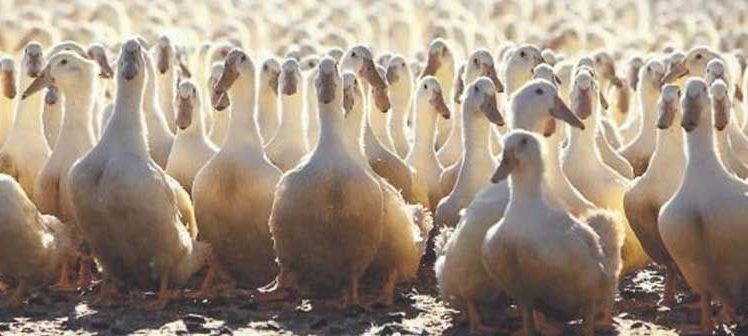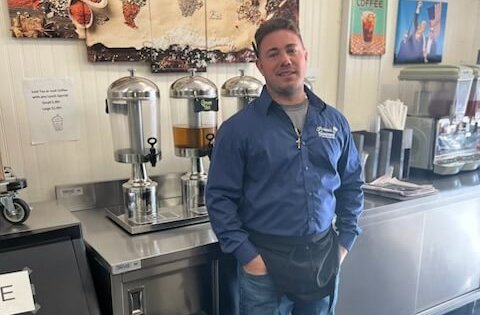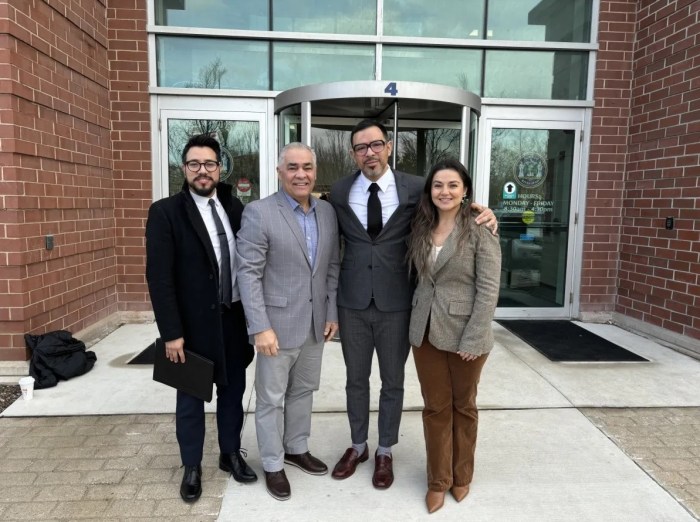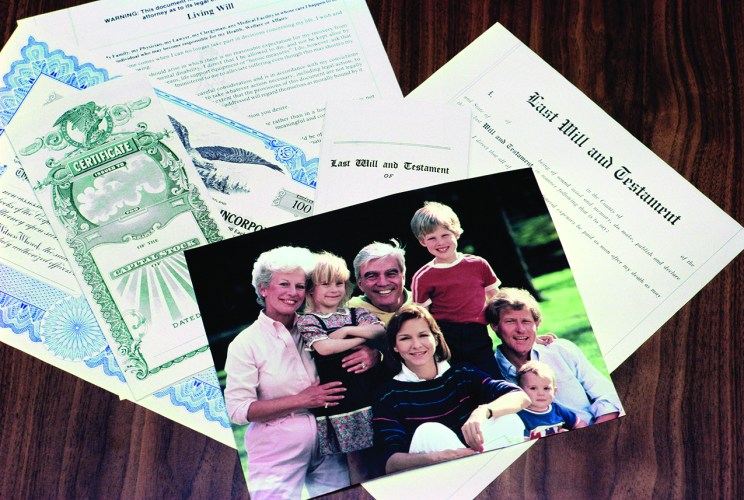Born in 1960 in Asheville, N.C., with the Blue Ridge Mountains as his backdrop, Warren Haynes had the benefit of listening to his older brothers’ huge record collections as the ’60s cultural revolution was rocking the free world.
He picked up the electric guitar when he was 12, and by the time he was 20 his reputation as a sizzling guitarist drawing on the blues and Southern rock had traveled far and wide. He teamed up with Allman Brothers guitarist Dickey Betts, who asked him to join the Allmans in ’89 when Betts and Greg Allman reformed their legendary band. Along the way he’s played with Grateful Dead’s bassist Phil Lesh, and later toured with The Dead in 2004 and ’09.
As a songwriter, bandleader, solo artist and gifted sideman, Grammy Award-winning Haynes is one busy musician with many projects always competing for attention. His newest release, The Tel-Star Sessions, which just dropped in August, features never-before-heard ’94 recordings made with the original lineup of his power trio known as Gov’t Mule: Haynes, the late Allman Brothers bassist Allen Woody and drummer Matt Abts. On Sept. 9 Haynes brings Gov’t Mule (with Abts, keyboardist Danny Louis and bassist Jorgen Carlsson) back to Nikon at Jones Beach Theater to share the bill with ZZ Top.
Related: 11 Questions With Allman Brothers Guitarist Warren Haynes
In October, Haynes will be the lead guitarist in an all-star tribute concert to Jerry Garcia’s musical legacy to be held at Washington, D.C.’s DAR Constitution Hall. When we caught up with Haynes recently, he spoke to us from San Francisco in between gigs in California.
Long Island Press: Did the San Francisco sound influence you growing up?
Warren Haynes: I had two older brothers, and they were big music heads. My oldest brother listened to a lot of the San Francisco stuff so I was hearing that music at a very young age. I think it had an impact on pretty much all rock listeners for the most part.
LIP: When I was a young teenager, pop culture was split in my home town between “psychedelic” music and Motown Soul. Did you have to cross that divide?
WH: We didn’t choose between them, but definitely there was a period of time when all we were listening to was soul music. But that changed. I think being a little younger I was never faced with “either/or”; I was always about “adding to,” you know, broadening your horizons. I never got the Beatles vs. the Stones thing, either!
LIP: Have you played at Jones Beach many times before?
WH: Probably 10 times.
LIP: Do they ever let you go swimming or do they keep you too busy there?
WH: Well, I’ve never been swimming there!
LIP: Is an outdoor venue as stunning as Jones Beach a distraction for a musician?
WH: Playing in beautiful places is always a plus, for the band and the audience. For us, it’s more about the connection with the crowd and the music. But the visual is nice.
LIP: If you had your way, would you rather play indoors or outdoors?
WH: My favorite is small theaters somewhere between 2,000 and 3,000 [seats]. But the big crowds are really nice. It’s just a different type of energy. In the intimate settings you have a more one-on-one connection with the audience. We also sometimes play these big festivals where there’s tens of thousands of people, and that’s a nice feeling, too. It’s just not quite as intimate.
LIP: You’re on a bill with ZZ Top, which I gather was also an early influence on your music.
WH: Yeah, absolutely I became a ZZ Top fan right from the beginning. When I discovered that music, I was just starting to play guitar. It was the perfect time period for me to be influenced by something so unique and powerful.
LIP: Compared to your tenure, I think that ZZ Top has generated a more pop-hit expectation in its audience than has your work, which is more improvisational like jazz. Is that a fair distinction? And can audience expectations be restrictive?
WH: Well, I think there’s enough similarities between the two bands that we attract a lot of the same types of fans. Certainly we have different fans as well. When I first started listening to ZZ Top at the very beginning, there was no template for what they were doing. They were doing something that was different from anybody else. Definitely different from the Allman Brothers, definitely different from the Rolling Stones and other bands from that time period. They created their own sound, which I think is the most important thing. It’s a little bit more minimalist than what we do, and that provides a great contrast. But they were certainly an influence of ours.
LIP: When I think of your live music, it seems more like jazz to me than ZZ Top. I hear more free form, and I hear Coltrane.
WH: We’re definitely taking influences from a lot of different places. I think most musicians and most artists do, but it’s just a matter of which ones they choose to allow to rise to the surface. Most of us listen to a lot of different music, and whether it comes through depends on the artists.
LIP: Did you ever play with Jerry Garcia?
WH: No, I never met Jerry Garcia.
LIP: Was it a burden or a challenge, having to follow his tracks?
WH: I’ve been very fortunate to be included in a lot of situations where I was working with or jamming with or performing with people that I grew up listening to, and I’ve always obviously welcomed that opportunity. When I first started playing with the Allman Brothers in 1989, people always asked me if it was a daunting role to be stepping into that music. As a 28-year-old, it was a bit daunting, but I had played with Dickey Betts three years prior, which was really a great initiation for me. So by the time they asked me to join the Allman Brothers, I was much more comfortable in that position than I would have been had I just auditioned one day and woke up the next day in the Allman Brothers.
LIP: I could see that creative style of jamming being very inspiring to a musician like you. Is that true?
WH: I love improvisation, and I love jazz and blues. I think the fact that I started listening to jazz at a really early age—I think I was around 14 when I started listening to Sonny Rollins and Miles Davis and Cannonball Adderley and Coltrane—and all the rock music that was influenced by it enticed me to want to make improvisation a big part of what I do. It’s been that way all my life. When I was starting to play guitar, all the rock bands made live recordings where they stretched the songs out and played longer versions. They did a lot more improv than bands did in later years. I was very influenced by that. I listened to every live record I could get my hands on.
LIP: Do you feel that the fans have evolved along with you?
WH: Yeah, I think there’s a whole scene of music fans out there today that is much more about the live experience. Gov’t. Mule is very fortunate to have an audience based on people who really love music and keep coming to see more and more shows because all of our shows are different. If you’re going to play improvisational music, the audience is a very important aspect of the overall thing.
LIP: Is there ever a moment when you’re on stage and you think, “Oh, shit, why did I play that? I meant to play this but it’s too late!”
WH: If you do that, it means that you’re thinking too much! The best improvisational music is when you shut off the thinking part of your brain and just surrender to the music and the moment—and that’s not as easily said as done. There are definitely times when we’re guilty of thinking too much, and I think the music suffers.
LIP: Is the music business harder now?
WH: I think it’s harder to make a living as a musician these days. It’s easier in some ways to have access to all the music through the internet and modern technology. It’s easier to record music and make it available to people. The way the music business has changed, though, it’s much harder to make a living than it was when I was a kid.
LIP: Where do you find your inspiration when you’re not playing on stage? How do you find out what’s fresh? I don’t expect you to be doing a rap album any time soon, but maybe you would!
WH: I try to listen to newer music. I find less and less new music that I would compare to the greatest music of all time, but there is great stuff out there, and I feel right now that it’s on an upswing. I think we were in a lull for a while. A lot of the music I was hearing wasn’t as inspired as my favorite music of the past. I’m starting to hear a lot of young musicians, not just guitar players, who have a very inspired attitude and are listening to all types of music with a very open mind. I think that’s the key.
LIP: You’re on tour, and you have The Tel-Star Sessions from ’94 that just dropped. Are you playing some of those older songs live?
WH: We are starting to play some of those songs. There are a few that we’ve never played before that we’re starting to play for this tour, which is nice. We’re also revisiting the early arrangements that we did back then and experimenting with going back to playing them the way that we used to, which is a bonus as well.
LIP: When I look at all your projects, from playing with Dickey Betts to doing the Jerry Garcia role as well as your own music, how do you keep all these silos straight? Is it all a creative ferment?
WH: It’s definitely a positive in my life that I have all these different projects, and that I’m surrounded by all these great musicians and artists, and that I’m constantly in a position of being able to do different things and be inspired by other folks. That’s one of the main things that does keep me inspired.
LIP: What should your Jones Beach audience expect?
WH: Well, I’ve played Jones Beach many times, and the New York audiences in general have always been wonderful for us.
LIP: Are they a tough crowd?
WH: An enthusiastic crowd—a crowd that really loves music.
LIP: Are you writing new music on this tour?
WH: We’re planning to go into the studio in November and start recording a new studio record.
LIP: Where’s your studio?
WH: Well, it depends. It’s looking more and more like New Orleans. But we don’t record in the same place all the time.
LIP: Did you ever learn how to play the banjo growing up in Asheville with its blue-grass roots?
WH: No, but I can bang around on one, but not very well.
LIP: What was the first electric guitar you ever owned?
WH: It was called a Norma and it cost $49. My dad got it at a local hardware store.
LIP: What’s the most recent guitar you’ve bought?
WH: I bought an old, like Robert Johnson-era, Gibson acoustic guitar that I’m looking forward to writing on and recording with.
LIP: So blues remains a big part of your repertoire and your inspiration.
WH: Yeah, it always will be, I’m sure. I think the blues, soul music and rock music are kind of at the heart of it, but blues is where it came from. And if you’re in love with that sound like I am, it never goes away.
Main Art: Gov’t Mule, featuring Warren Haynes on lead guitar, is ready for some Jones Beach music. (Photo by Anna Webber)
Legendary guitarist Warren Haynes and Gov’t Mule rock Nikon at Jones Beach Theatre on Sept. 9 with ZZ Top.



